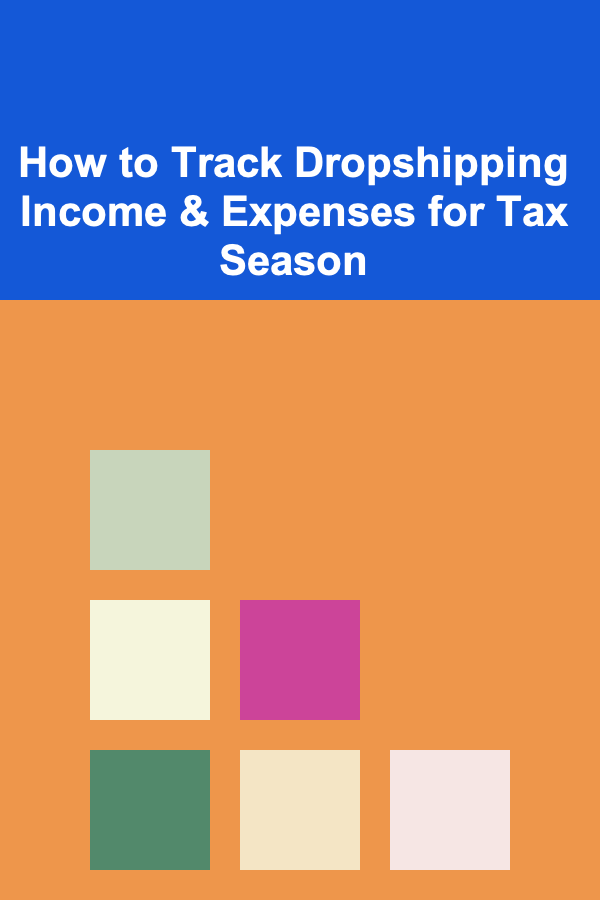
Top Tips for Minimizing Credit Card Debt Without Sacrificing Your Lifestyle
ebook include PDF & Audio bundle (Micro Guide)
$12.99$11.99
Limited Time Offer! Order within the next:

Credit card debt can feel like an insurmountable challenge. It's easy to accumulate debt when you rely on credit cards for everyday expenses or larger purchases, and interest rates can quickly cause your balance to grow. However, minimizing credit card debt doesn't mean you need to completely give up the things you enjoy or drastically change your lifestyle. With the right approach, you can reduce your debt without sacrificing the comforts of life. This guide provides actionable steps to help you manage and eliminate credit card debt while maintaining a balanced, fulfilling lifestyle.
Assess Your Current Debt Situation
Before you can take action, it's important to understand exactly how much credit card debt you have and where it stands in relation to your overall finances.
Take Inventory of Your Debt
- List all your credit cards: Write down the balance, interest rate, minimum payment, and due dates for each card. This will give you a clear picture of what you're dealing with.
- Check your credit score: Your credit score will impact the interest rates you're charged. A higher score may allow you to refinance or transfer balances to a lower-interest card.
- Understand your spending habits: Track your expenses over a few months to determine where you're spending unnecessarily. This insight will help you cut back on non-essential expenses.
Determine Your Priorities
Once you know the scope of your debt, decide which card or cards to focus on first. You can approach this in two main ways:
- Debt avalanche method: Pay off the card with the highest interest rate first. This approach minimizes the overall interest you'll pay in the long run.
- Debt snowball method: Pay off the smallest debt first. While this takes longer to save on interest, it can be psychologically motivating as you knock out smaller balances quickly.
Create a Realistic Budget
A well-structured budget is the cornerstone of paying down credit card debt without sacrificing your lifestyle. You need to make sure you're living within your means while allocating enough to pay off your debt efficiently.
Track Your Income and Expenses
- Set limits for categories like dining out, entertainment, and shopping. Avoid the temptation to overspend by sticking to these limits.
- Automate your savings: Treat savings as a non-negotiable expense. Set aside a portion of your income for an emergency fund, separate from your debt repayments. A buffer will help you avoid accumulating more debt in the future.
- Cut unnecessary expenses: After tracking your expenses, identify non-essential spending that you can reduce or eliminate without compromising your lifestyle too drastically. For instance, reduce your monthly streaming services to one or cut back on dining out by cooking at home more often.
Allocate Extra Funds to Debt Repayment
- Pay more than the minimum: Whenever possible, pay more than the minimum required payment. Even small extra payments can make a big difference in reducing your debt over time.
- Use windfalls: If you receive a bonus, tax refund, or any other unexpected income, put part of it toward paying off your credit card debt. This can help you make substantial progress without affecting your regular budget.
Consolidate or Refinance Your Debt
If you're carrying high-interest credit card debt, consider consolidating or refinancing to lower your interest rates and simplify your payments. This can significantly accelerate your debt payoff.
Balance Transfer Credit Cards
- Look for a card with a 0% introductory APR on balance transfers. Many credit cards offer 0% interest for the first 12-18 months, which gives you breathing room to pay off your balance without accumulating more interest.
- Beware of fees: Some balance transfer cards charge a fee, typically around 3-5% of the balance. Make sure the savings from the 0% APR outweigh the transfer fee.
Personal Loan for Debt Consolidation
- Fixed payments: A personal loan allows you to consolidate all your credit card balances into one loan with a fixed interest rate and payment term.
- Lower interest rates: If your credit score has improved, you might qualify for a personal loan with a lower rate than your credit cards.
- Streamline your payments: Consolidating can make your financial life easier by reducing the number of payments you have to track, and it also provides a clear payoff schedule.
Adopt a Cash-Only Lifestyle Temporarily
If you're serious about minimizing credit card debt, consider adopting a cash-only system for a short period. This doesn't mean cutting back on everything you enjoy, but rather paying with cash for things you typically put on credit.
The Envelope System
- Create envelopes: For various spending categories, such as groceries, entertainment, or dining out, allocate a set amount of cash each month. Once the envelope is empty, that's all you can spend in that category for the month.
- Limit impulse purchases: Using cash makes it more tangible and harder to overspend. The physical act of handing over cash can make you think twice about unnecessary purchases.
Try a "No-Spend" Challenge
- Set a time frame: Try committing to a week or a month where you only spend on essential items, such as food, utilities, and transportation. This challenge can help you get a handle on your spending habits and discover areas where you can cut back without significant lifestyle changes.
- Reallocate savings: Any money you would have spent during this no-spend period can be put toward your credit card debt.
Find Ways to Boost Your Income
If your budget is already tight, the best way to make more room for debt repayment without sacrificing lifestyle is to increase your income. You don't have to take on a full-time job, but there are many ways to generate additional cash flow.
Take on a Side Hustle
- Freelancing: Use your skills, such as writing, graphic design, or web development, to pick up freelance projects. Sites like Upwork, Fiverr, and Freelancer offer opportunities to work on short-term projects.
- Gig Economy Jobs: Consider driving for Uber or Lyft, delivering food through DoorDash or Postmates, or offering other on-demand services. These gigs allow for flexibility and can help boost your income.
Sell Unused Items
- Declutter: Go through your home and identify items you no longer use or need. You can sell clothing, electronics, furniture, or collectibles on platforms like eBay, Poshmark, or Facebook Marketplace.
- Host a yard sale: If you prefer to sell in person, consider hosting a yard sale to clear out items you don't use anymore. The proceeds can be put directly toward paying down debt.
Monetize Your Hobbies
- Photography or art: If you're a hobbyist photographer or artist, consider selling prints or offering photo sessions or artwork for sale.
- Blogging or YouTube: If you enjoy creating content, consider starting a blog or YouTube channel. Monetizing content takes time, but it can provide long-term passive income.
Maintain Discipline Without Feeling Deprived
One of the most important aspects of managing credit card debt is finding a balance between debt repayment and enjoying life. The key is making conscious choices without feeling deprived.
Enjoy Low-Cost Alternatives
- Social activities: Instead of going out for expensive dinners or entertainment, consider hosting potluck dinners, watching movies at home, or exploring free local activities like hiking or visiting parks.
- Affordable hobbies: Pursue hobbies that don't break the bank. Reading, exercising, or cooking are great examples of low-cost activities that can enrich your life without contributing to debt.
Mindful Spending
- Pause before purchasing: If you're tempted to make a purchase, give yourself a cooling-off period. Wait 24 hours before buying anything non-essential. This helps to curb impulse buys.
- Buy used or on sale: When shopping for non-essential items, look for sales, buy secondhand, or take advantage of cashback apps or loyalty programs.
By following these actionable tips, you can take control of your credit card debt without giving up the things you enjoy. It's all about finding a healthy balance between reducing your debt and living a fulfilling, financially responsible lifestyle.
Reading More From Our Other Websites
- [Home Budget Decorating 101] How to Create a Warm and Inviting Home on a Budget
- [Soap Making Tip 101] Charcoal-Infused Luxury: Crafting Your First Activated Charcoal Soap
- [Home Storage Solution 101] How to Organize Your Home's Entryway for Better Storage
- [Home Cleaning 101] How to Get Your Home Ready for Guests in a Flash
- [Organization Tip 101] How to Organize Your Garden's Fencing and Supports
- [Organization Tip 101] How to Create a Craft Supply Donation Box
- [Skydiving Tip 101] From A-Dropzone to Full License: The Essential Training Timeline Explained
- [Home Staging 101] How to Stage a Home for the Winter Season
- [Organization Tip 101] Why You Should Involve the Whole Family in Organization Projects
- [Personal Care Tips 101] How to Experiment with Bold Blush Colors for a Statement Look

How to Invest in Precious Metals for Portfolio Diversification
Read More
How to Organize Clothing by Occasion for Each Season
Read More
How to Sell Handmade Pottery on Etsy: A Comprehensive Guide
Read More
How to Understand the Blockchain Trilemma
Read More
How to Track Dropshipping Income & Expenses for Tax Season
Read More
How to Fly a Drone in Windy Conditions
Read MoreOther Products

How to Invest in Precious Metals for Portfolio Diversification
Read More
How to Organize Clothing by Occasion for Each Season
Read More
How to Sell Handmade Pottery on Etsy: A Comprehensive Guide
Read More
How to Understand the Blockchain Trilemma
Read More
How to Track Dropshipping Income & Expenses for Tax Season
Read More